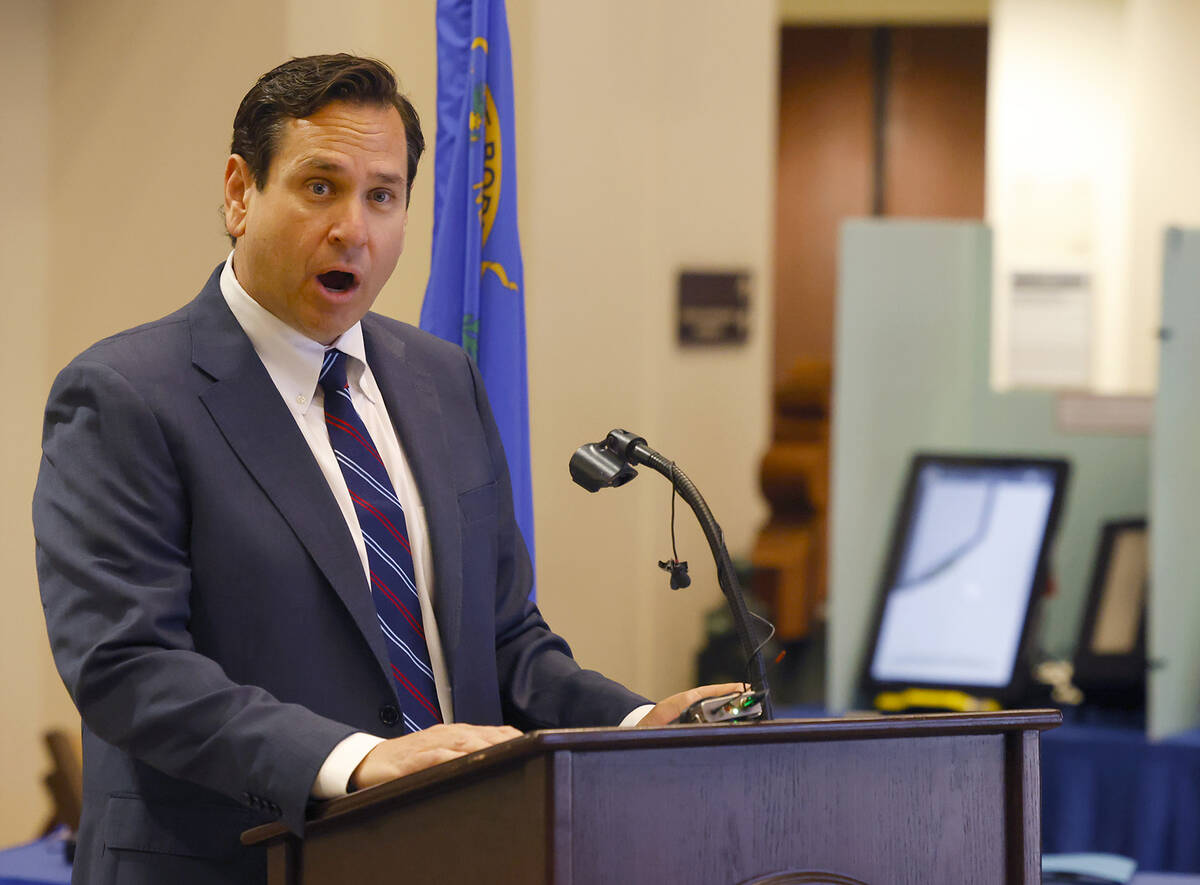VICTOR JOECKS: Democrat election official admits truth about signature verification
Anyone who still thinks that signature verification is a quality security measure needs to listen to Nevada’s Democratic secretary of state.
The most embarrassing thing about Nevada’s election process is that it takes days to get results. The day after the election, Republican Senate candidate Sam Brown had a small lead over Democrat Sen. Jacky Rosen. But while people slept last Wednesday, a new batch of ballots put Rosen ahead.
There is a logical explanation. It starts with this: Democrats were more likely to vote by mail. In Clark County, around 447,000 voters used a mail ballot. More than 42 percent of those voters were Democrats. Fewer than 24 percent were Republicans. That’s a more than 18-point gap. But overall, Democrats had a less than 5-point edge in Clark County. Early in-person voting favored Republicans, while Democrats narrowly won Election Day.
The late-arriving ballots were mail ballots. Voters either dropped them off on Election Day or mailed them shortly before the Election Day deadline. This is why it makes sense that the ballots counted late favored Rosen.
Yet it still looks terrible. Nevada’s election system shouldn’t regularly feature post-election night comebacks. It erodes trust in the integrity of the process. It isn’t necessary either. Florida counts almost all of its ballots in hours, not days. One obvious change Nevada could make is requiring mail ballots be received by 7 p.m. on Election Day.
That would help, but it wouldn’t be a cure-all if tens of thousands of mail ballots came in at the deadline. That’s because signature verification takes time. Election officials compare a voter’s signature on file with the signature on the envelope. If the signatures match, the ballot goes through. If not, it’s set aside to be “cured.”
A 2020 Facts vs. Myths sheet from the secretary of state’s office claimed, “A signature is used to authenticate the voter.”
Now, there are many problems with this system. The most obvious is that signatures aren’t unique as are fingerprints. It’s why Clark County officials accepted my signature on eight of nine mail ballots in 2020. They accepted my signature on six of 11 mail ballots in 2022.
This year, Secretary of State Francisco Aguilar made a similar comment. “Signature verification is an important security check in the voting process,” he said in a statement.
But then he noted that many voters’ signatures don’t match what’s on file. This includes “older voters who may sign their names differently throughout the course of their lives, voters who have recently gotten married but haven’t updated their name on their voter registration, and yes, young people who may not have a set signature developed.” He even noted that Nevadans who “sign their names on digital screens” may end up with different “pen-to-paper signatures.”
All true. And impossible to square with the idea that signature verification is a strong “security check.”
The good news is that Question 7, the voter ID initiative that passed overwhelmingly, would implement a better system. It would require voters using mail ballots to include a unique identifying number to verify their identity.
Question 7 will go into effect if it passes again in 2026. That day can’t come soon enough.
Contact Victor Joecks at vjoecks@reviewjournal.com or 702-383-4698. Follow @victorjoecks on X.























